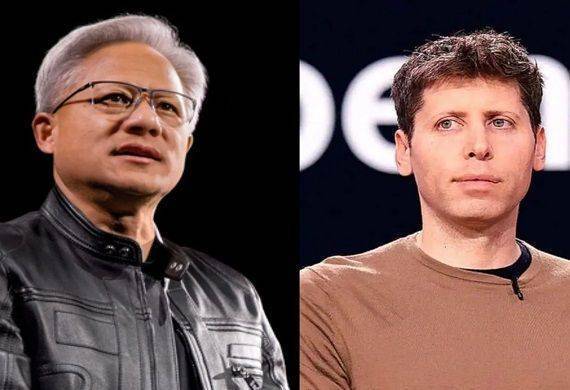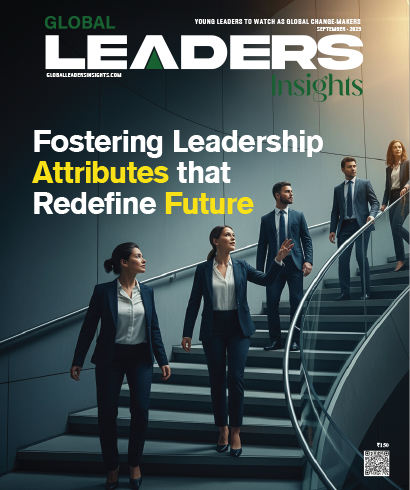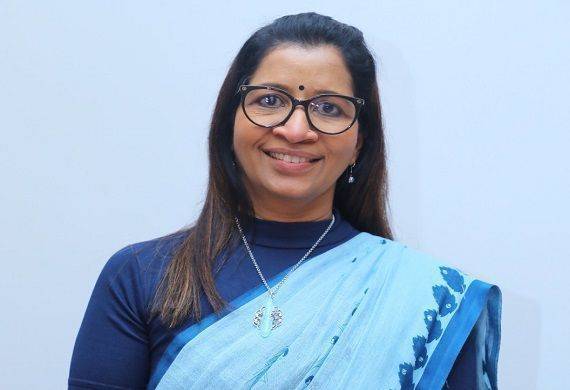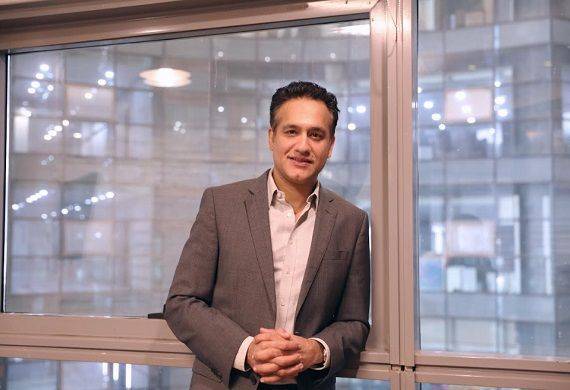Nvidia & OpenAI Support 100K USD H-1B Fee After Trump Shift
By Global Leaders Insights Team | Sep 25, 2025

In a bold defense of U.S. immigration policies amid escalating tensions in the tech sector, Nvidia CEO Jensen Huang and OpenAI CEO Sam Altman have voiced strong support for a controversial $100,000 H-1B visa application fee introduced by President Donald Trump.
The leaders argue that the hike, while burdensome, is a necessary step to attract and retain the world's top innovators, underscoring the tech industry's reliance on global talent.
The fee increase, announced earlier this month, has sent shockwaves through Silicon Valley and beyond, particularly affecting Indian IT professionals and U.S. tech giants dependent on H-1B visas for skilled workers in AI, software engineering, and chip design.
- Nvidia and OpenAI back $100K H-1B visa fee to attract top global talent
- Tech CEOs Huang and Altman defend Trump-era H-1B hike amid AI race
- US immigration policy debate heats up as Nvidia, OpenAI push high-fee plan
Critics, including immigration experts, have labeled the move "regressive," warning it could stifle innovation by pricing out smaller firms and exacerbating talent shortages. Yet, Jensen Huang and Sam Altman frame it as a pragmatic trade-off in the race for AI supremacy.
Speaking to CNBC, Huang emphasized immigration's role in America's economic engine. "We want all the brightest minds to come to the U.S.," he declared. "Immigration is the foundation of the American Dream. We represent the American Dream. It's really important to our company and to our nation’s future." As Nvidia dominates the AI hardware market with its GPUs, Huang's words carry weight—his company employs thousands of H-1B holders and views international recruitment as essential to outpacing competitors like AMD and Intel.
Echoing this sentiment, Altman, whose OpenAI pioneered ChatGPT, advocated for efficiency in the visa process. "We need to get the smartest people in the country," he said in a recent statement, "and streamlining that process and also sort of outlining financial incentives seems good to me." Altman acknowledged the fee's steepness but positioned it as an investment in long-term competitiveness, especially as AI demands escalate.
The debate unfolds against a backdrop of deepening U.S.-China tech rivalry, where access to elite engineers is a strategic imperative. Nvidia's recent $100 billion commitment to OpenAI—starting with $10 billion for non-voting shares—highlights these stakes. The deal, includes supplying advanced data center chips to power OpenAI's next-gen models, potentially creating thousands of high-skill jobs. Without streamlined immigration, experts fear such partnerships could falter, driving talent to Europe or Asia.
Proponents of the fee argue it funds visa program enhancements, reducing fraud and prioritizing merit-based selections. Opponents, including advocacy groups like the American Immigration Council, counter that it disproportionately burdens startups and mid-sized firms, widening inequality in the job market.
Also Read: Australia's Teen Social Media Ban Gains Global Attention
As Congress debates amendments, Huang and Altman's endorsements signal a rare bipartisan push from tech's elite. "The U.S. can't afford to close its doors," Huang added, invoking the stories of immigrants like himself, who arrived from Taiwan in the 1970s. With AI projected to add $15.7 trillion to the global economy by 2030, according to PwC, the H-1B fee battle could redefine America's innovation edge.
For now, the policy stands, testing the resolve of leaders betting on brains over borders. As Altman put it, the goal is simple: Build the future here, not elsewhere.


